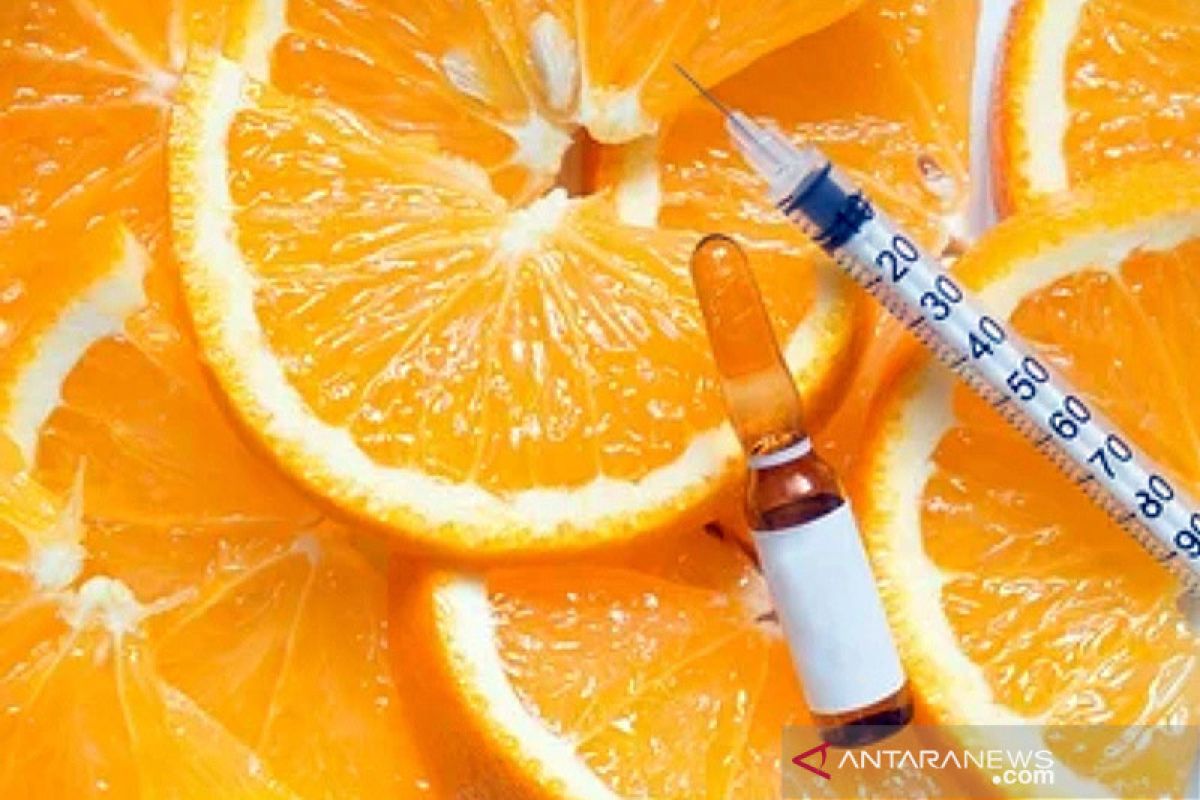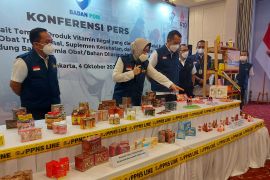From a safety point of view, all injection procedures come with a risk of bruising after injection into difficult (to reach) blood vessels. There is a risk of air embolism if they do not comply with the protocolJakarta (ANTARA) - There are a variety of "immune boosters" available in the form of vaccinations, infusions, or oral supplements for maintaining health, especially amid the COVID-19 pandemic, a health expert has said.
An immune booster is a vitamin or multivitamin containing Vitamins B, D, and E, and folic acid, which can be injected or taken orally, with the dosage depending on the nutritional needs of each person, Dr. Cynthia Jayanto, M. Biomed (AAM), who graduated from Udayana University, said in a press release on Tuesday.
"From a safety point of view, all injection procedures come with a risk of bruising after injection into difficult (to reach) blood vessels. There is a risk of air embolism if they do not comply with the protocol," she added.
Related news: East Java Governor supports Red and White Vaccine clinical trial
In terms of efficacy, vitamins taken through infusion tend to last longer in the body compared to those that are injected, she said. When injected into the body, vitamins are processed through the stomach, liver, and kidneys, she explained. Some can be directly excreted through urine, she added.
"But it's a different story if it's in the form of infusion. Inside the infusion, there is sodium chloride liquid or intravenous fluid. This multivitamin will bind to sodium chloride; sodium chloride is a salt mineral liquid, in which salt's property is to store fluids in the body," she elaborated.
It is expected that the multivitamins that bond with the salt solution will last longer in the body, she said.
Immune boosters have been made available since not everyone can comply with a set, orderly schedule of taking oral vitamin supplements, Jayanto said. Clinics are providing vitamins in the form of infusions, she noted.
Related news: Regional governments must fully use COVID-19 vaccine stocks: minister
"But sometimes, not all clinics have the same content in the infusion. Because each clinic has its own immune booster content. Therefore, we also need to find out what was put into the body during infusion," she added.
Sometimes, clinics use large doses of immune boosters to get the body to adjust to them more quickly and optimally, Jayanto revealed.
However, from a nutritional point of view, this is actually not needed and cannot be done continuously, because it does not match the body's needs, she said.
"These things need to be known by everyone who is interested in trying or for people who usually take care of their bodies through immune boosters. So, we as customers have the right to ask the clinic about the content of immune boosters that are inserted into our bodies," she reiterated.
Related news: Seven Central Java districts given one week for boosting vaccinations
She did not recommend immune boosters for people who have a history of disease, saying it can prove problematic for them.
Patients who can experience adverse reactions upon taking immune boosters include people with a history of chronic ulcers, G6PD blood disorders, chronic kidney disorders, allergies to some vitamins, autoimmune diseases, and pregnant or lactating women, she said.
"It is better to consult with a doctor first," she added.
Related news: Domestic medicines to use TKDN materials: Health Ministry
Related news: Bio Farma distributed 233.4 million COVID-19 vaccines until Nov 4
Translator: Lia W S, Mecca Yumna
Editor: Fardah Assegaf
Copyright © ANTARA 2021












